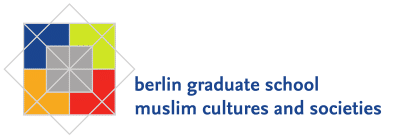Surrogacy in transnational perspective: a medical ethnography of intended parenthood in German-speaking countries
In the last few years, assisted reproductive technologies (ART), such as the use of sperm and ova donations, in-vitro fertilization (IVF), intracytoplasmic sperm injection (ICSI), and surrogacy, have gained increased importance. These technologies are helping a growing number of people to fulfill their desire to have children. However, ARTs – and among them especially surrogacy – are widely criticized in German public discourses. This especially concerns the possibility of financial distress that may force a woman to become a surrogate; a perceived ‘unnaturalness’ of a pregnancy which is based on a legal contract and which ends with handing over the child to the commissioning parent/s; the commodification and commercialization of human life, as well as fears concerning the production of ‘designer babies’, etc. These concerns are mirrored in strict laws throughout all three German-speaking countries (Germany, Austria, and parts of Switzerland) which are among the most restrictive worldwide. While some ARTs (e.g. inseminations, IVF, and sperm donations in Germany) are legal and under certain circumstances financially supported by health insurance, others, such as egg donation or surrogacy are illegal in all three German-speaking countries.
Notwithstanding the fact that certain ARTs are criminalized in these legal contexts, people continue to make use of these technologies. In most cases the persons concerned perform the respective procedures abroad – the destinations of reproductive travel ranging from Eastern Europe (e.g. Ukraine, Georgia) to Asia (particularly India) and the United States. However, even if intended parents choose to tread this path, they are still confronted with a variety of problems, especially when it comes to the child’s citizenship.
This project investigates transnational surrogacy with a particular focus on the experiences of intended parents. In contrast to existing research, which mainly deals with surrogacy in national contexts within which the practice is legally sanctioned (e.g. India, Israel, US), this project looks at the particular situation of intended parents in German-speaking countries – a situation that is strongly influenced by the illegal status of surrogacy. For intended parents, this is further complicated by the fact that surrogacy has little acceptance in public discourses. Methodologically, this project is based on ethnographic interviews with intended parents, physicians, lawyers, and politicians.



